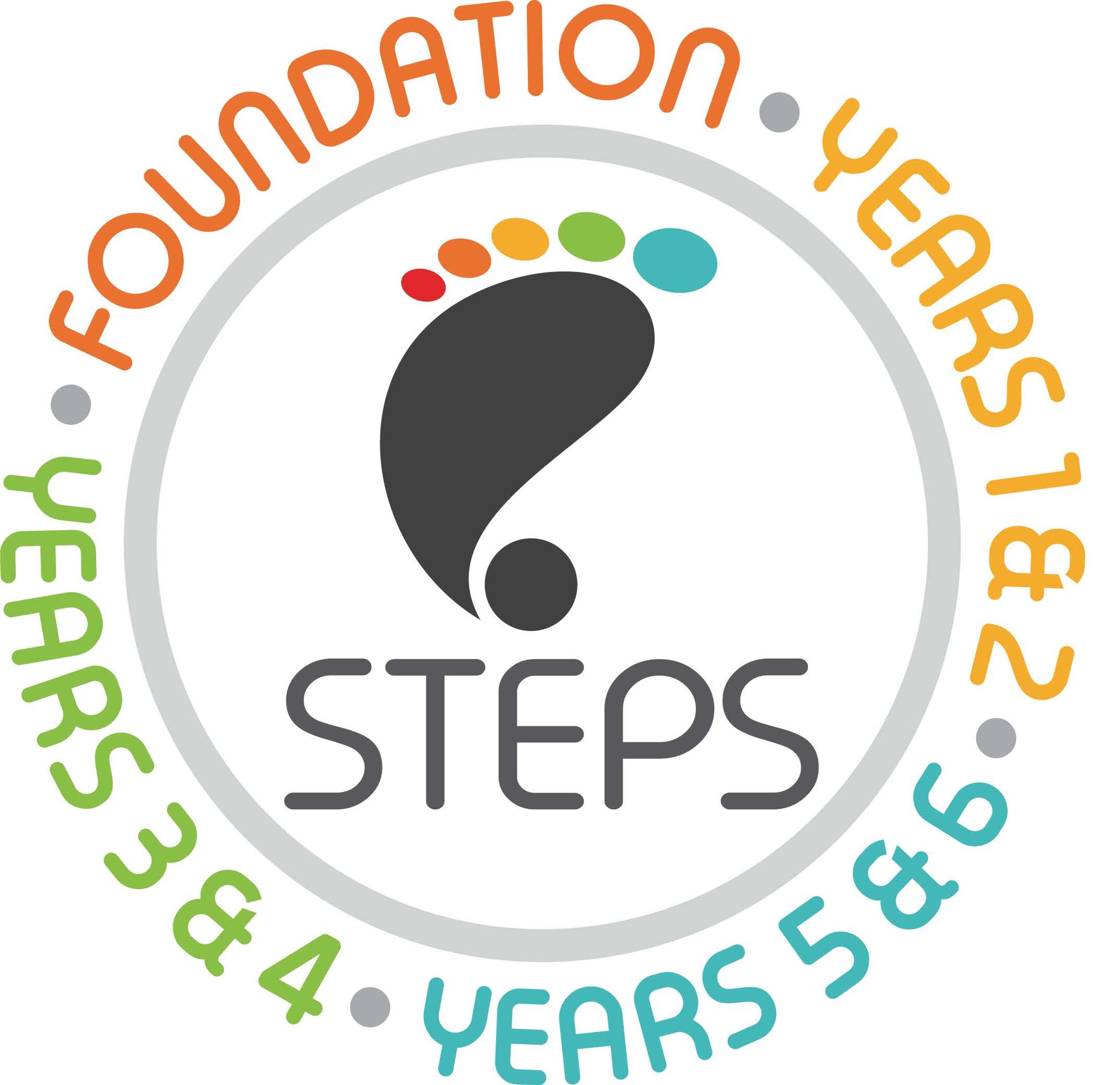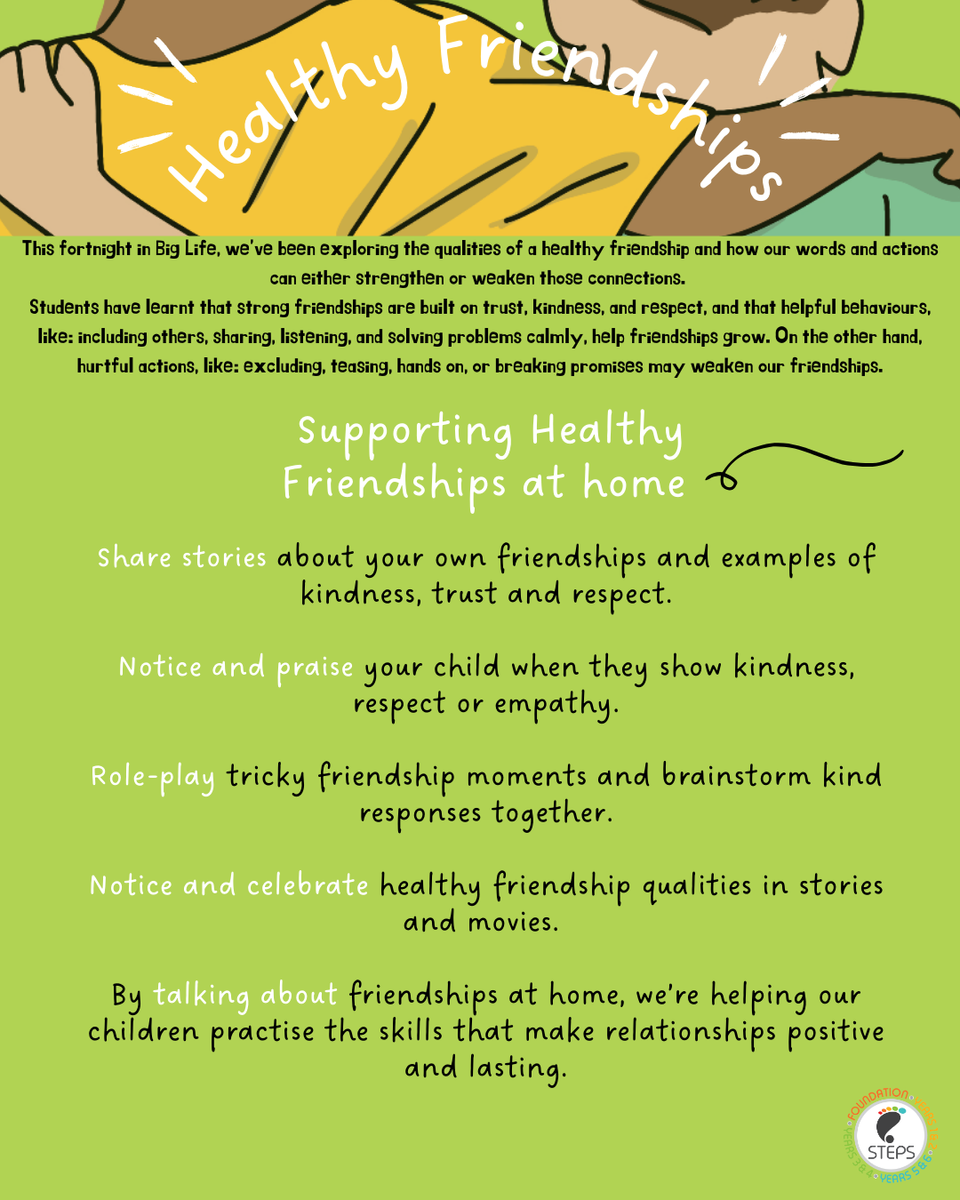BIG LIFE - Footsteps

Term 3 - Week 6 & 7
Footsteps Classroom Learning:
This fortnight in Big Life, we’re exploring the qualities of healthy friendship and how our words and actions can either strengthen or weaken those connections. Students have learnt that strong friendships are built on trust, kindness, and respect, and that helpful behaviours, like: including others, sharing, listening, and solving problems calmly, help friendship grow. On the other hand, hurtful actions, like: excluding, teasing, hands on, or breaking promises may weaken our friendships.
Ways you can support healthy friendship at home:
1) Share stories about your own friendship and examples of kindness, trust and respect.
2) Notice and praise your child when they show kindness, respect and empathy.
3) Role-play tricky friendship moments and brainstorm kind responses together.
4) Notice and celebrate healthy friendship qualities in stories and movies.
By talking about friendship at home, we’re helping our children practice the skills that make relationships positive and lasting.
Welcome to Big Life - Footsteps
We are excited to be working with A Big Life implementing their Footsteps Program across all year levels in our school. The Program has been developed and informed by evidence and in collaboration with students, teachers, and parents of our local Warrnambool & District Schools, to ensure that it meets the needs of young people in our local context. The program also aims to lean into our schools’ current strengths and the great work that is already happening. The Footsteps Program is supported by Warrnambool Student Wellbeing Association, Fletcher Jones Foundation, La Trobe University, and the Department of Education.
The Footsteps Program provides classroom lessons and teacher professional development, to support students to build the skills and capacity to navigate life’s ups and downs and safeguard their mental health. Each fortnight students participate in a new Footsteps lesson and parents can access these resources through the Parent Website. https://sites.google.com/education.vic.gov.au/biglifefootstepsparentaccess/about-footsteps
We encourage parents to extend and support this learning and conversation at home.
In the classroom we are exploring what causes us to feel different zones.
Emotions can sometimes feel like a mystery, but when children understand why they feel a certain way, they are better able to manage challenges and make positive choices.
At school, we use the Zones of Regulation to help students recognize their emotions and what causes them. By identifying what triggers different emotions—like frustration when a task is difficult (Yellow Zone) or ‘optimistic’/’eager’ when something fun is planned (Green Zone)—students can understand their reactions and feel more in control.
Knowing the cause of their emotions also helps children communicate their feelings more clearly. If they realize they’re feeling tired and unfocused (Blue Zone), they can express that they need a break. If they recognize they are overwhelmed (Red Zone), they can begin to step back rather than react impulsively.
By developing this self-awareness, students build confidence in managing their emotions, strengthening relationships, and staying engaged in learning.

